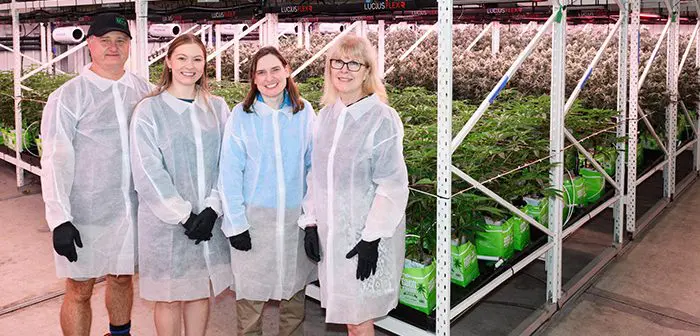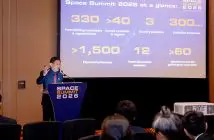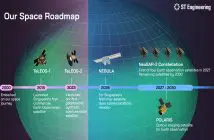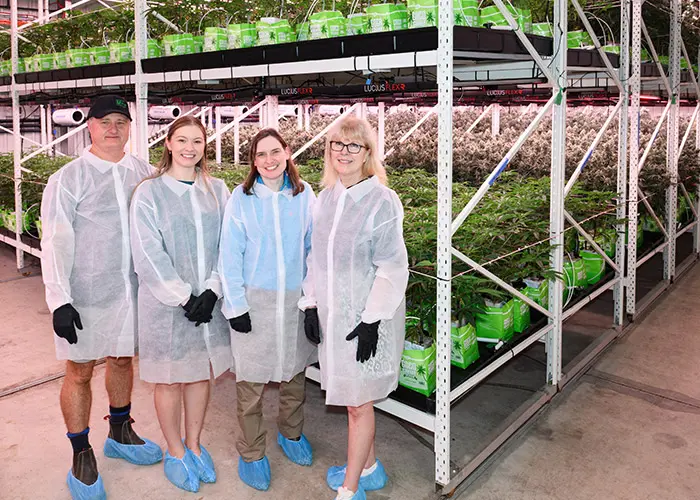
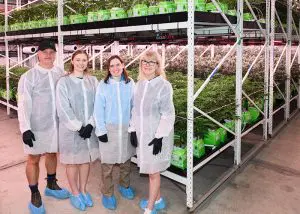
Image (L-R): Andrew Olley – Medicinal Harvest, Kavanna Trewavas – iLAuNCH, Associate Professor Cheryl MacCarthy – University of Southern Queensland & Tracey Perez – Medicinal Harvest.
Australian-developed plant monitoring technology will be flown to space in this University of Southern Queensland (UniSQ) led, iLAuNCH Trailblazer project, demonstrating a key technology capability for sustainable plant-based food production in space and on Earth.
Just as agriculture is essential for life on Earth, space crops are anticipated to be an important food source in long-term space missions. Technologies that assist automated food plant production are vital for space and will also have significant commercial applications here on Earth.
“Our second collaboration with Axiom Space will focus on advancing a novel plant stress monitoring technique developed by the University of Southern Queensland by testing it in space,” said iLAuNCH Trailblazer Executive Director, Darin Lovett.
“The iLAuNCH Trailblazer mission will provide launch capability for machine vision of plant growth, building on UniSQ’s expertise in terrestrial agriculture. In collaboration with Axiom Space, the ARC Centre of Excellence in Plants for Space, and space laboratory company Yuri Gravity, the project will deploy a flight-ready plant growth chamber to advance machine vision technology for monitoring plant development in microgravity. Additionally, the partnership with Australian company Medicinal Harvest will explore the commercial applications of this technology for terrestrial agriculture, further expanding its potential impact.”
“UniSQ’s Centre for Agricultural Engineering, with over 30 years of expertise in terrestrial agriculture, recognises the critical importance of autonomous plant growth monitoring for future sustainable food production systems. Controlled Environment Agriculture technologies are pivotal to addressing food security challenges posed by limited land availability and a growing global population,” said UniSQ Associate Professor Cheryl McCarthy.
This project follows UniSQ’s successful Australian Space Agency-funded research (2021–2022) which pioneered novel plant monitoring algorithms using machine vision, and have been further refined through an autonomous agriculture consortium, Autonomous Agriculture for Space Exploration, led by UK company Vertical Future with funding from the UK and Australian Space Agencies (2024-2025).

